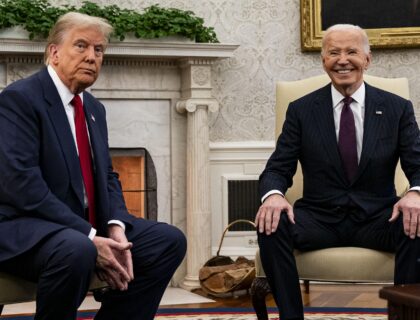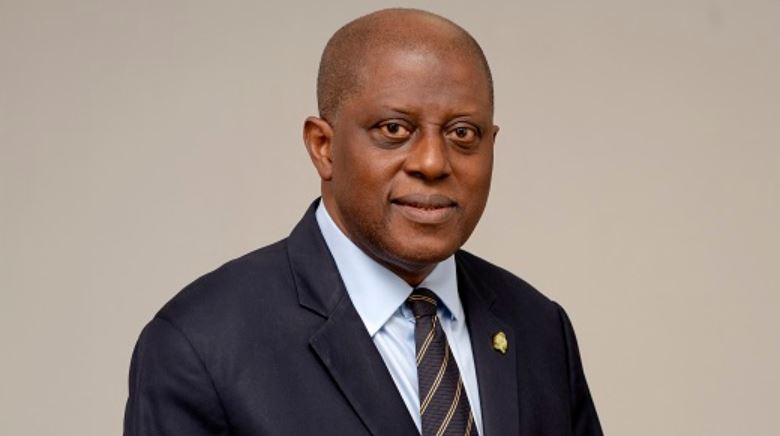Nigeria’s Economic Reforms Aim to Bridge Forex Gap Amid Declining Oil Prices
Nigeria’s foreign reserves have begun a modest recovery, rising from $37.93 billion in mid-April to $38.46 billion by May 29, after months of decline driven by falling oil prices and unstable crude output.
The Central Bank of Nigeria (CBN) credits the rebound to a slight recovery in oil production and renewed policy focus on boosting non-oil exports. Oil, which provides over 90% of Nigeria’s forex earnings, dropped in price by nearly 17% this year, pressuring the economy and shrinking reserves.
CBN Governor Olayemi Cardoso emphasized strategies to reduce import reliance, urging telecom firms to manufacture components like SIM cards locally. He also highlighted the creative industry’s potential to generate up to $25 billion annually in forex.
Meanwhile, foreign investor confidence is gradually returning, buoyed by market reforms and ongoing CBN interventions to stabilize the naira. Despite continued global oil market volatility, the current uptick in reserves offers cautious optimism.
“We must look inwards and get Nigerian companies to produce these key components in telecom operations locally. The government also has a role to play by ensuring that key infrastructure, especially power, is available. We do not want a situation where locally produced inputs will become more expensive than imported versions,” he asserted.
“The high demand for foreign exchange by telecom operators has further pressured the naira due to increased demand for the dollar. However, with adequate infrastructure development and a conducive operating environment facilitated by regulators, these challenges can be mitigated.
Nigeria’s drive for backward integration in the telecom sector is gaining traction, with experts arguing that increased investment could help operators localize production of key components like SIM cards—ultimately reducing costs and improving profitability, provided infrastructure challenges are addressed.
“Given FX constraints and infrastructure deficits, local manufacturing can only succeed with a stable business climate,” said Charles Abuede, Head of Research at Cowry Asset. “But if achieved, it will enhance margins and support long-term growth.”
Under Governor Olayemi Cardoso, the Central Bank of Nigeria has introduced sweeping reforms to deepen the foreign exchange market. These efforts have led to a 226% jump in daily FX turnover and a 72% increase in foreign portfolio inflows year-on-year.
The country’s reserves have also grown from $32 billion in May 2023 to over $40 billion—Nigeria’s strongest reserve level in nearly three years—providing eight months’ import cover.
Cardoso said over $9 billion in capital outflows have been processed in the past year, a sign that investors are now able to repatriate capital freely, reinforcing confidence in Nigeria’s economic direction.
“In addition, we witnessed a $6bn current account surplus in the first half of 2024 as a result of the impact of these reforms. Reduction in petroleum product imports supported by improved domestic refining capacity, a growing focus on non-oil exports, and higher remittance inflows helped to support the positive current account balance,” he said.
Additionally, a supportive policy environment has resulted in a doubling of monthly remittances, rising from an average of $300m in 2023 to nearly $600m in August 2024.
“We are committed to further integrating the Nigerian diaspora into our financial system, exemplified by the introduction of the non-resident Bank Verification Number registration. We expect our financial institutions to develop products that not only enable the diaspora to support their families but also provide opportunities for savings and investment in Nigeria,” Cardoso added.
In a bid to boost diaspora inflows and support naira stability, the Central Bank of Nigeria (CBN) has launched two new financial products targeted at Nigerians abroad the Non-Resident Nigerian Ordinary Account and the Non-Resident Nigerian Investment Account.
According to the apex bank, the initiative is designed to streamline remittance processes, deepen diaspora participation in the Nigerian economy, and enhance financial inclusion.
CBN’s move comes as diaspora remittances continue to play a critical role in Nigeria’s foreign exchange ecosystem. “Remittances now rival foreign direct and portfolio investment,” said Dr. Aminu Gwadabe, President of the Association of Bureaux De Change Operators of Nigeria. He praised the initiative, stating it aligns with the bank’s strategy to double formal remittance receipts within a year.
A Western Union report echoed this sentiment, noting that African diasporas sent home $90 billion in 2023—highlighting the growing significance of these inflows not just in economic terms, but in their human impact.
The CBN says the new accounts will offer secure, transparent channels for managing funds and investing in Nigerian markets, reinforcing its broader efforts to stabilize the FX market and attract foreign capital.
You may be interested

Trump Administration Questions Legitimacy of Biden’s Final Pardons
gisthub - Jun 03, 2025The Justice Department under Trump is looking into pardons that Biden issued before leaving office, especially those given to family members and some…

Shocking Allegations: Woman Sells Toddler to ‘Witch Doctor’; Body Later Found Buried
gisthub - Jun 03, 2025A South African mother is facing charges of premeditated murder after allegedly selling her two-year-old daughter to a self-proclaimed witch doctor for £3,100.…

Chloe Othen Describes ‘Terrifying’ Ordeal of Being Punched and Bitten by Former Partner
gisthub - Jun 03, 2025A former Miss Universe finalist has told a UK court she feared for her life during a violent confrontation with her ex-boyfriend at…
Most from this category














Leave a Comment